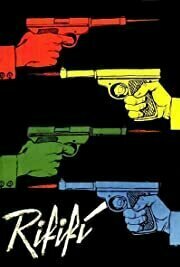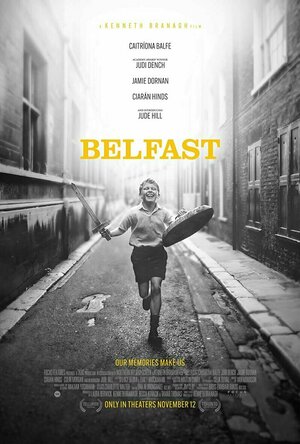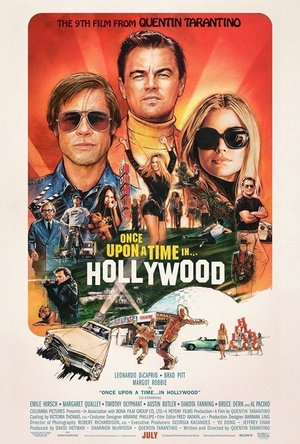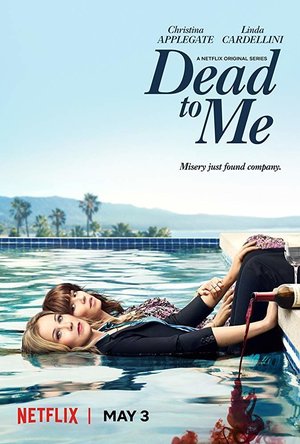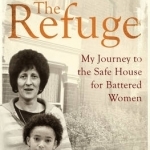
The Refuge: My Journey to the Safe House for Battered Women
Book
Until 1971, female victims of domestic violence were expected to 'kiss and make up' with their...
Heather Cranmer (2721 KP) created a post
Jun 21, 2020
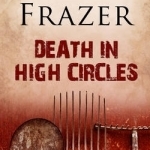
Death in High Circles
Book
There is mischief afoot in the village of Fallow Fold. Persons unknown have been on a spree of...
Michael Korda recommended Rififi (1955) in Movies (curated)
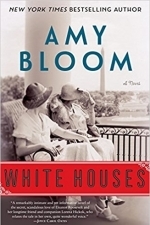
White Houses
Book
"Amy Bloom brings an untold slice of history so dazzlingly and devastatingly to life, it took my...

The Great British Farmhouse Cookbook (Yeo Valley)
Book
Not just a name on a yoghurt pot, Yeo Valley is a real organic farm in the picturesque West Country....
LeftSideCut (3776 KP) rated Belfast (2021) in Movies
Jan 14, 2022
It's visual style is both stunning and simple, and is brimming with plenty of striking imagery.
It's themes are rich. The setting explores the civil unrest between Protestants and Catholics in 1960s Belfast. This turbulent moment in time is a constant presence for sure, but the main bulk of the narrative deals with a working class family who are struggling with debt, and are looking to potentially relocate to England in light of the city wide violence. The very heart of the story though is found in Buddy, the young son of the family who is dealing with growing up and not wanting to leave. Buddy's actor, Jude Hill, is excellent. He embodies innocent childhood and the adventure that comes with it. He's an 11 year old actor, holding his own against screen veterans such as Ciarán Hinds and Judi Dench (both fantastic as always).
Other than Buddy, most of the heavy lifting is undertaken by the mother, played by Caitriona Balfe, who really deserves an Academy Nomination for her role here. Jamie Dornan also stars, who proved to be a pleasant surprise for me, only knowing him from the obvious, and is a welcome addition to an all round stellar cast. Throughout this, the narrative touches upon loss and loneliness, and the moments of life that manage to be bittersweet.
Belfast is a sometimes heartwarming, powerful, occasionally funny, and often melancholy tale told with a lot of love and care. Kenneth Branagh has delivered a slice of cinematic gold.
Jesters_folly (230 KP) rated Once Upon a Time in Hollywood (2019) in Movies
Aug 26, 2019
Like all Tarantino movies, when there is no action, and there is very little action, the film crawls at a slow pace with lots of set up, dialog and driving meaning that nothing much happens for the first hour and a half. This time is used to set up the characters and the three intertwining time lines; The main one with Rick and Cliff, one that follows Sharon Tate and one that follows the Manson family.
As with most Tarantino film’s the narrative isn't linear with a lot of Rick’s back story being told by flashbacks and clips from films and T.V. shows, both real and fictional.
I have said that this is not an action film but it does have a few violent scenes, including people getting burnt with a flame thrower. The film culminates with the Manson family's murder of Karen Tate and Roman Polanski, however, as with Inglorious Bas****ds the film goes off on a different tangent from what really happened.
There are a few ‘meta' moments in ‘Once upon a time in Hollywood’ including a moment where Rick is reading a book that is echoing his life and other moments where Rick and Cliff interact with other real actors, most of whom don't play themselves (partly because some of the real actors are dead) creating and oddly unreal atmosphere.
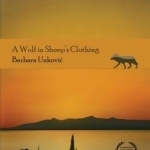
A Wolf in Sheep's Clothing
Book
Barbara Unkovi? is a keen and perceptive observer of the human condition, as her previous...
Amy Norman (1048 KP) rated Dead to Me in TV
May 17, 2020
I put Season 1 on as a whim, and it was not what I expected at all, I was pleasantly surprised.
It has the witty gritty humour of older programs like 'Dexter', it touches on some emotional subjects but I wouldn't say it will bring you to tears.
It is more slice of life, as it touches on those subjects with a dark humour you will find yourself relating to.
It was refreshing to see a strong female lead cast, where it just felt like the norm, sometimes programs can push that agenda a bit too hard.
The balance of the two female leads is perfect in their oddly formed symbiotic relationship, and felt a bit closer to reality than other false female friendships you see on TV.
The way the story unfolds is brilliant, and well paced. You will feel those 'oh no' moments, and wonder what will happen next with a sense of dread.
Prepare for almost each episode to be a cliff hanger, or WTF just happened, which will draw you into the next episode.
'Dead to Me' is certainly not what you think it is going to be, and is definitely worth a watch.
P.S. it also makes great use of swearing 😅
